 |
| Mad cow disease |
Foodfarmnewstv
FADAMA 111 PROJECT ADDITIONAL FINANCING
Bestchange
Search This Blog
Labels
- News (459)
- Images speak (42)
- Press Release (39)
- livestock (31)
- FACAN (29)
- Editorial (25)
- GM (20)
- Seed (20)
- Biotechnology (19)
- wheat (16)
- Research (15)
- Cassava (14)
- AFAN (13)
- Global news (12)
- Special Report (12)
- Rice (11)
- Image Speaks (9)
- Maize (9)
- Soil (9)
- Yam (8)
- Bt cowpea (7)
- Coconut (7)
- Fertilizer (7)
- Cocoa (6)
- Disease (6)
- Ginger (6)
- Potato (6)
- World Soil Day (6)
- Animals (5)
- Apple (5)
- Oil Palm (5)
- Tomatoe (5)
- new (5)
- Cashew (4)
- Climate change (4)
- Fish (4)
- NCARD (4)
- Organic agric (4)
- World Food Day (4)
- Interview (3)
- National Council meeting on Agriculture. (3)
- Plant & genes (3)
- Plant genes (3)
- Project (3)
- Sesame (3)
- Shea butter (3)
- AI Research on Agriculture (2)
- Achia (2)
- African Cherry (2)
- Communique (2)
- Cotton (2)
- Extension services (2)
- Gene editing (2)
- HAPPY NEW YEAR (2)
- Horticulture (2)
- Insurance (2)
- Kenaf (2)
- Opinion (2)
- Sorghum (2)
- Sunflower (2)
- Tomato (2)
- Turmeric (2)
- bt cotton (2)
- seasons greetings (2)
- Artemesia (1)
- Biodiversity (1)
- Birds (1)
- Carrot (1)
- Discovery (1)
- Donkey (1)
- Facts sheets (1)
- Flash Flood (1)
- GES (1)
- GMO Rice (1)
- Garlic (1)
- Genetic (1)
- Groundnut (1)
- Jute bag (1)
- Locust bean (1)
- MERRY XMAS (1)
- Machinery (1)
- Mango (1)
- Milk (1)
- Okra (1)
- Post-harvest losses/ Food Waste (1)
- Presentation (1)
- Seaweed (1)
- Senate (1)
- Soybean (1)
- Tumeria (1)
- Walnut (1)
- flood (1)
- fruits (1)
- millet (1)
- water (1)
Total Pageviews
SPONSORED

Nigerian Institute of Soil Science- NISS
Translate Food Farm News to Hausa, Igbo, Yoruba and over 100 Languages
Latest News
Thursday, 1 November 2018
Four More Cows Culled in Scotland to Test for BSE
How 19 drystock farmers are contract rearing over 2,000 dairy heifers and making up to €1,400/ha
 |
| The contract rearer needs to be technically efficient, an excellent grassland manager and aware if the benefits of reaching target weights. |
In November 2015, some 19 drystock farmers in Sligo and Leitrim came together to investigate the potential of contract rearing dairy heifers as a means of increasing stocking rate and increasing the profitability of their farms.
World hunger continues to rise due to climate extremes, UN warns
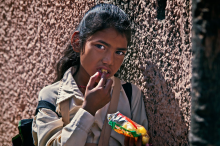 |
The reports calls for the promotion of sustainable, healthy diets |
Wednesday, 31 October 2018
Agroecology could feed Europe without pesticides by 2050, study
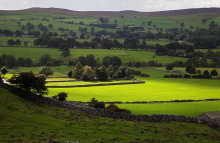 |
The study calls for more hedges, trees and stony habitats |
Global hunger for soybeans 'destroying Brazil's Cerrado savanna'
 |
| Global hunger for soybeans 'destroying Brazil's Cerrado savanna' |
Tuesday, 30 October 2018
UN Human Rights Council adopts peasant rights declaration
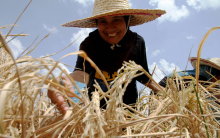 |
| Peasant farmers are the backbone of our food systems |
Monday, 29 October 2018
Images speak at the farmers' Dialogue on Quality seeds advocacy held at the Man Power Development Institute, Dutse, Jigawa state. Sponsor by PERL-DFID.
 |
| Pictures speak at the farmers' Dialogue on Quality seeds advocacy held at the Man Power Development Institute, Dutse, Jigawa state. Sponsor by PERL-DFID. |
Pictures speak at the farmers' Dialogue on Quality seeds advocacy held at the Man Power Development Institute, Dutse, Jigawa state. Sponsor by PERL-DFID.
Empowering Africa’s rural women will help fight hunger, study
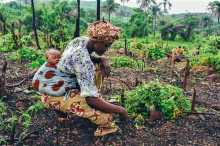 |
| Women are the backbone of rural production (Photo: CC0) |
Sunday, 28 October 2018
We can feed 10 billion people by 2050 within planetary limits, study
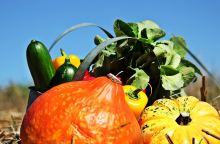 |
| global shift towards healthy and more plant-based diets is needed (Photo: CC0) |
Saturday, 27 October 2018
Scientists urge rapid and radical changes to limit global warming
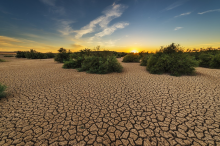 |
Global warming will increase the intensity and frequency of droughts (Photo: CC0) |
Subscribe to:
Posts (Atom)




